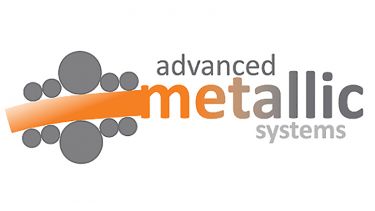The ability to predict transformation behaviour during steel processing, such as primary heat treatments or welding, is extremely beneficial for tailoring microstructures and properties to a desired application. In this work, a model for predicting the continuous cooling transformation (CCT) behaviour of low-alloy steels is developed, using semi-empirical expressions for isothermal transformation behaviour. Coupling these expressions with Scheil’s additivity rule for converting isothermal to non-isothermal behaviour, continuous cooling behaviour can be predicted. The proposed model adds novel modifications to improve CCT predictions through the addition of a carbon-partitioning model, thermodynamic boundary conditions, and a Koistinen-Marburger expression for martensitic behaviour. These modifications expanded predictions to include characteristic CCT behaviour, such as transformation suppression, and an estimation of the final constituent fractions. The proposed model has been shown to improve CCT predictions for EN3B, EN8, and SA540 B24 steels by better reflecting experimental measurements. The proposed model was also adapted into a more complex simulation that considers the chemical heterogeneity of the examined SA-540 material, showing a further improvement to CCT predictions and demonstrating the versatility of the model. The model is rapid and open source.
This will be a very valuable tool for those seeking to model low alloy steel CCT behaviour rapidly to inform other simulations, such as those predicting weld residual stresses.
Dr Ed Pickering, The University of Manchester
​â¶Ä‹â¶Ä‹â¶Ä‹
Many of the currently available packages that model CCT behaviour do not specify how exactly they predict steel behaviour and end up restricting model adaptation and modification. Additionally, the majority of these packages are not open source, thereby limiting their accessibility to certain users. In this work we develop a rapid and open-source predictor for low alloy steel CCT behaviour that improves upon the limitations of currently available models. Our model is built using Python programming language in order to promote usability and readability. Consequentially, this also allows for fast runtimes, often taking under 10 seconds to output a single CCT prediction containing 10 cooling rates (tested using computer specifications: Intel(R) Xeon(R) W-2104 CPU @ 3.20 GHz processor and 32.0 GB of RAM). Writing the model in Python also encourages users to both modify and adapt the model into their own predictions. In its basic form, the model can be quickly used to obtain microstructural predictions for continuous cooling treatments, or it can be easily incorporated into more complex models requiring multiple predictions for steel reaction kinetics, e.g., for models considering weld residual stresses. The model is free, open-source and the code has been published online.
Joshua Collins is a final year PhD student at The University of Manchester and a member of the Advanced Metallic Systems (AMS) CDT. Josh's PhD project is titled "A Comparison of Steels for Nuclear Bolting Applications" where he is specialising in the phase transformation and mechanical behaviours of low alloy steels. Much of his attention has also been focused on the modelling of steel behaviour, specifically during the continuous cooling process. Josh was awarded a Master's degree in Material Science and Engineering from The University of Manchester in 2019 where he completed four years of integrated study.
Equipment used:
TA DIL-805 Dilatometer, Royce Hub Building, University of Manchester
BH2 series Olympus Optical Microscope, MECD, University of Manchester
Matsuzawa MMT-X7A Microhardness Indenter, MECD, University of Manchester
Thermo Scientific Apreo 2 SEM, PSI, University of Manchester
JEOL 8530F FEG-EPMA, PSI, University of Manchester



